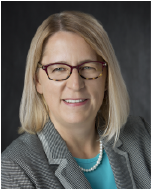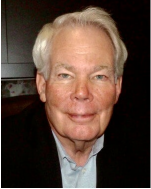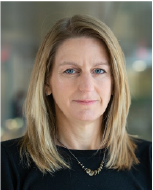The American Meteorological Society (AMS) recognized four members of the Atmospheric Radiation Measurement (ARM) user facility and Atmospheric System Research (ASR) community among its 2022 Awards and Honors Recipients.
The Awards and Honors program acknowledges outstanding achievement from individuals and organizations within the weather, water, and climate community.
AMS held an awards ceremony during its 2022 annual meeting, which took place virtually from January 23 to 27.

Petra Klein, executive associate dean of the College of Atmospheric and Geographic Sciences and a professor of meteorology at the University of Oklahoma, is the latest recipient of the Helmut E. Landsberg Award for exemplary contributions to urban meteorology, climatology, or hydrology.
AMS cited Klein’s “decades of sustained leadership in the field of urban meteorology and exemplary contribution to experimental investigation of flow and turbulence characteristics in urban areas.”
Klein’s current ASR-funded project, Coastal Urban Boundary-layer Interactions with Convection (CUBIC), aims to improve the understanding and modeling of critical boundary-layer processes in coastal urban environments. The project is connected to ARM’s TRacking Aerosol Convection interactions ExpeRiment (TRACER) in the Houston, Texas, area. During TRACER’s intensive operational period in summer 2022, Klein will lead the TRACER-CUBIC field campaign, which will collect high-resolution atmospheric boundary-layer profiles.

L. Ruby Leung, an atmospheric scientist at Pacific Northwest National Laboratory (PNNL) in Washington state and the chief scientist of the U.S. Department of Energy’s ongoing Energy Exascale Earth System Model (E3SM) project, received the Hydrologic Sciences Medal.
Presented to researchers who make outstanding contributions to scientific knowledge in hydrology, hydrometeorology, and/or hydroclimatology, the medal represents the highest award given by AMS to a person in the hydrologic sciences. AMS honored Leung for her “ingenious, groundbreaking contributions which enhance the modeling of land-atmosphere interactions and the hydroclimate.”
Leung was the principal investigator for the 2015 ARM Cloud Aerosol Precipitation Experiment (ACAPEX). This campaign collected data on atmospheric rivers—long, thin bands of water vapor that tend to dump large amounts of rain after hitting land, usually mountains.
Currently, Leung is on the core science team for ARM’s Surface Atmosphere Integrated Field Laboratory (SAIL) field campaign in Colorado. Scientists plan to use SAIL data to better understand physical processes and interactions that affect mountain hydrology.
Read more about Leung and her award in this PNNL release.

Steven Rutledge, a professor of atmospheric science at Colorado State University, received the Verner E. Suomi Technology Medal. The medal recognizes highly significant technological achievement in the atmospheric or related oceanic and hydrologic sciences.
AMS honored Rutledge for his “exceptional contributions to the development, innovation, and application of radar meteorology and atmospheric electricity technologies.”
Rutledge co-led two recent ASR-funded projects on cloud-resolving models (CRM) and helped develop a computational framework, the POLArimetric Radar Retrieval and Instrument Simulator (POLARRIS), for CRM evaluation. A 2019 paper described the application of POLARRIS to simulations of a mesoscale convective system over ARM’s Southern Great Plains atmospheric observatory.

Allison Steiner, a professor of atmospheric sciences at the University of Michigan, gave the Walter Orr Roberts Lecture in Interdisciplinary Sciences during AMS on January 24.
AMS chose Steiner because of her “outstanding research in biosphere-atmosphere interactions and their influence on atmospheric chemistry, weather, and climate.” Steiner’s lecture focused on the coupling between the terrestrial biosphere and the atmosphere.
From 2018 to 2021, Steiner led an ASR-funded project that used measurements from ARM’s Southern Great Plains atmospheric observatory to evaluate the role of pollen on cloud formation. Currently, Steiner is a member of the site science team providing guidance for the move of the third ARM Mobile Facility from Alaska to the Southeastern United States.
A list of all 2022 AMS Awards and Honors Recipients can be found here.
Nominate Your Peers for 2023 AMS Awards and Honors
The deadline to submit nominations for the 2023 AMS Awards and Honors program is May 1, 2022. To learn more about the program or to submit a nomination, go to the AMS Awards and Honors web page.
The 2023 AMS Annual Meeting is scheduled for January 8 to 12 in Denver, Colorado.
# # #This work was supported by the U.S. Department of Energy’s Office of Science, through the Biological and Environmental Research program as part of the Atmospheric System Research program.

